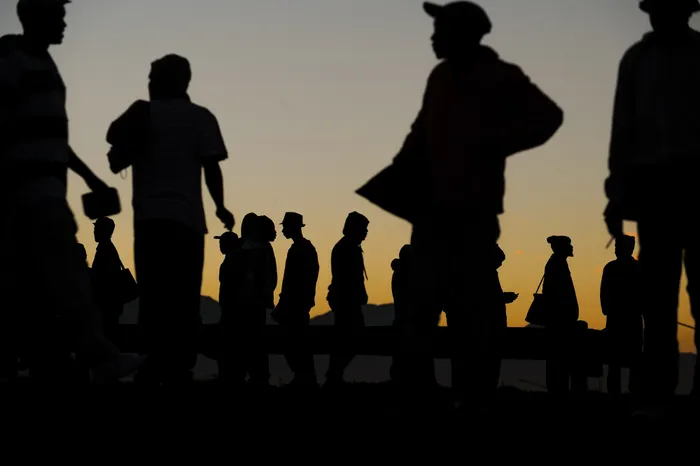The Enigma of Rapture: Hope or Hysteria?

In post-apartheid South Africa, where inequality festers and youth unemployment remains endemic, apocalyptic narratives gain traction.
Image: Henk Kruger/Independent Newspapers
"And the trumpet shall sound, and the dead shall be raised incorruptible..." — 1 Corinthians 15:52In the twilight of September, South Africa was not in the throes of political upheaval, but in the grip of theological speculation. Mahlatse Letoka, a junior accountant at KPMG, circulated a mass email predicting the Rapture on 23–24 September 2025, aligning with the Jewish Feast of Trumpets.
Her 173-page document, filled with apocalyptic warnings, went viral. Her declaration — “I’d rather get fired than watch my colleagues go through this” — was met with administrative leave. Simultaneously, Pastor Joshua Mhlakela proclaimed a divine vision confirming the exact dates. His prophecy, amplified through TikTok and YouTube, birthed the hashtag #RaptureTok.
It is alleged that some believers quit jobs, sold possessions, and gathered in Johannesburg awaiting ascension. The trumpet did not sound. The dead did not rise. And the living were left with satire, sorrow, and spiritual confusion.
This moment invites sober reflection. It reveals the tension between religious psychosis—where belief becomes delusion—and eschatological sensationalism — where prophecy becomes performance. Both distort the moral and theological essence of Christian eschatology. History offers sobering parallels.
From the Montanists of the 2nd century to William Miller’s “Great Disappointment” in 1844, and Harold Camping’s failed forecasts in 2011, the annals of faith are littered with unmet expectations. Scripture itself resists date-setting.In 1 Thessalonica 4:16-17, Paul’s tone on the Rapture is neutral and non-committal.
Paul speaks of believers being “caught up” to meet the Lord. The Greek harpagēsometha implies suddenness, not escape. The phrase echoes Roman civic custom—welcoming a dignitary, not fleeing, affirming this as comfort, not calendar. Moreover, Paul’s eschatology is politically subversive — a theological resistance to imperial domination.
Yet even in Thessalonica, some believers ceased working, adopting a laissez-faire posture while awaiting the Lord’s return. Paul admonished them: “If anyone will not work, neither shall he eat.” Misplaced expectation, then as now, can erode civic responsibility. In post-apartheid South Africa, where inequality festers and youth unemployment remains endemic, apocalyptic narratives gain traction.
For many, the Rapture offers emotional escape from systemic despair. However, as theologian Tinyiko Maluleke reminds us, “Christian hope must not be a flight from history, but a force within it.”Jesus warned, “No one knows the day or hour.” Predictions distract from the ethical demands of hope: justice, mercy, and readiness.
The Rapture is not a calendar event but a theological affirmation that history bends toward redemption. The poet Kofi Awoonor writes: Hope is not a song sung easily, but a drumbeat rising from the ruins.
Let us not sensationalise the sacred. Let us turn from sky to street, from speculation to service. Archbishop Desmond Tutu once said, “Hope is being able to see that there is light despite all of the darkness.” This moment is not a failure — it is a summons. Not to fear, but to faithfulness. The world needs not our predictions, but our presence.
Dr KP Motuku (Senior Lecturer, Department of Biblical and Ancient Studies, University of South Africa).